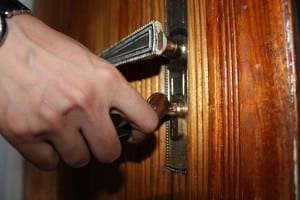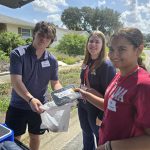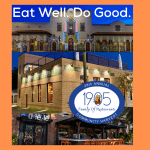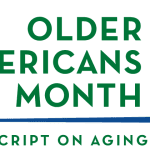Alzheimer’s disease and other types of dementia can impact safety in several ways, affecting judgement, orientation (your sense of time and place), behavior, physical ability, and senses. A person with Alzheimer’s disease may get lost on their own street, forgetting which house is theirs and what their street number is. They may forget how to use ordinary household appliances, or they may have trouble with balance or experience changes in sensory perception.
Despite these concerns, people with Alzheimer’s disease can live safely with proper precautions. As the Alzheimer’s Association explains, “With creativity and flexibility, you can create a home that is both safe and supportive of the person’s needs for social interaction and meaningful activity.”
 The Zone Method for Home Safety for Alzheimer’s Sufferers
The Zone Method for Home Safety for Alzheimer’s Sufferers
Some experts recommend dividing the home into “zones” by setting boundaries, including:
- Danger zones – areas that are either hazardous to access or contain unsafe items
- Respite zones – areas where the caregiver can relax and have a few moments of privacy
- Safe zones – areas that are carefully set up to provide a safe atmosphere for the individual suffering from Alzheimer’s disease
By setting boundaries between these zones, you can ensure that there are areas of your home where your loved one can safely go about his day without worrying about potential dangers.
Remove Outdoor Safety Hazards
Wandering is a concern with some Alzheimer’s sufferers, so it’s not uncommon for someone with Alzheimer’s disease to head outside and wander around the property, or worse, beyond. Installing a fence can help to keep your loved one from exiting the property and wandering into unfamiliar territory.
There are some common dangers that should be addressed outside your home beyond preventing your loved one from leaving the property, as well. For instance, locking up grill lighters, matches, and lighter fluid and potentially hazardous chemicals will prevent a person with Alzheimer’s disease from accidentally harming themselves. You should also take precautions with pools and hot tubs, such as installing a sturdy, locked fence and/or covers that cannot be easily removed.
Secure pets.
Pets are absolutely great for our health, but if your loved one’s dog, for example, is a little on the hyper side he could become a fall hazard. It may also become more difficult for your loved one to care for their pet as their Alzheimer’s advances. Fortunately, there are many great care options, especially for dogs, these days so that your loved one won’t have to give up their four-legged pal. For example, you might look into hiring a local pet sitter or dog walker. They can come play with your loved one’s dog or take the furry friend for a walk. That way the animal will get the exercise they need so that they’ll be more obedient in your loved one’s home.
Take Precautionary Measures to Avoid Falls
As balance is sometimes an issue for Alzheimer’s sufferers, implementing home safety measures to help prevent falls is one of the most important things you can do to ensure your loved one’s safety. There are a variety of ways to help reduce falls in the home, such as reducing clutter, eliminating throw rugs and ensuring that cords are not stretched across common walkways or hallways, and making sure the home has adequate lighting.
Of course, fall prevention means not only addressing the environment, but the body, as well. Encouraging your loved one to participate in light exercise (only if their physician approves), such as going for a swim, making sure they get regular eye exams and have the right prescription for corrective lenses, and keeping a watchful eye following the use of medications that may cause dizziness or drowsiness can also help you play an important role in keeping your loved one safe.
Anticipate Risks and Hazards, and Adapt Accordingly
As Alzheimer’s disease progresses, your loved one’s symptoms may change. Caregivers who know their loved ones best may be able to anticipate potential risks and hazards in the home that were previously safe.
Being able to adapt and make safety modifications in the home is one of the most important roles a primary caregiver can play in keeping an Alzheimer’s sufferer safe. By gradually implementing safety precautions over time, caregivers allow those with Alzheimer’s disease to remain independent and participate in activities they enjoy as long as possible.
Of course, there may come a time when you can no longer care for your loved one on your own. Know that that’s ok. There are many care options—from home care to assisted living to nursing homes—that can help you provide the care your loved one needs.
With the right safety measures in place, people with Alzheimer’s disease can enjoy their normal lives and continue residing in their own homes safely. Caregivers, together with physicians and other professionals, such as occupational therapists, can devise effective plans that create a safe home environment for many people living with Alzheimer’s.
Marie Villeza was inspired to start ElderImpact.org after she watched her son teach her father how to play Angry Birds™ on his smartphone. In that moment, she realized the importance of bringing the generations together so they can usher each other into the future, breaking down walls of fear and time. In her free time, she enjoys gardening, hiking, and taking part in her monthly book club.
**Photo Credit: Image via Pixabay by bohed**
About Meals On Wheels of Tampa:
Meals On Wheels of Tampa has been committed to nourishing and enriching the independent lives of the homebound and seniors of Tampa since 1975. Today, Meals On Wheels of Tampa serves over 700 people with a hot meal during the lunch hour. Meals On Wheels of Tampa is a 4-star charity and relies on its community for support by not accepting government funding.
Follow Meals On Wheels of Tampa on Facebook | Linkedin | Twitter | Google+ | Instagram | YouTube








